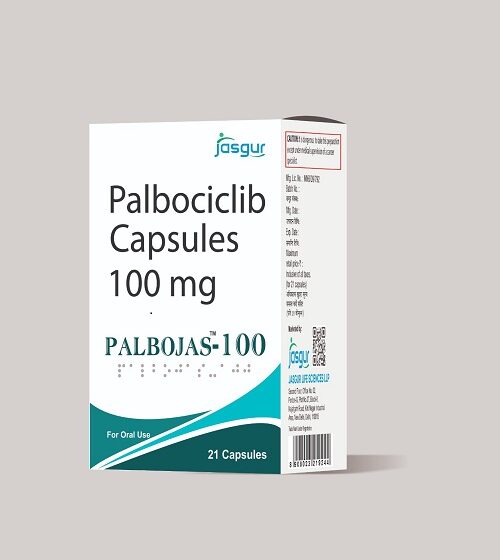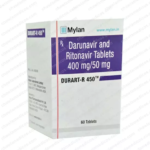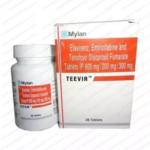The Ultimate Guide to the Best Anti-Cancer Medicines: Empowering Your Health Choices
Cancer is one of the most critical health challenges facing our society today. With millions diagnosed every year, it not only affects the individuals but also their families and communities. Understanding cancer and its treatment options can be a daunting task. However, being informed about the best anti-cancer medicines can empower patients and their loved ones to make educated decisions regarding their health. This guide aims to provide insights into these medicines, their effectiveness, and how they can improve patient outcomes.
Understanding Cancer and Its Impact
Cancer is a group of diseases characterized by the uncontrolled growth and spread of abnormal cells. There are over 100 different types of cancer, each varying in severity and treatment options. According to the World Health Organization (WHO), cancer is the second leading cause of death globally, accounting for nearly 10 million deaths in 2020 alone.The diagnosis of cancer can be overwhelming, often leading to a range of emotions, including fear, anxiety, and uncertainty. Patients face not just physical challenges but also emotional and psychological impacts. Understanding the treatment landscape, particularly the best anti-cancer medicines, can help alleviate some of this stress and provide hope.
The Importance of Anti-Cancer Medicines
Anti-cancer medicines, also known as oncological medications, are crucial in the fight against cancer. They work by targeting and destroying cancer cells or inhibiting their growth. The choice of medication depends on various factors, including the type of cancer, its stage, and the patient’s overall health.There are several categories of anti-cancer medicines:
- Chemotherapy: This involves the use of drugs that kill rapidly dividing cells, a hallmark of cancer. While effective, chemotherapy can also affect healthy cells, leading to side effects.
- Immunotherapy: This innovative approach boosts the body’s immune system to better fight cancer. It has shown promise in treating various types of cancer.
- Targeted Therapy: These drugs target specific molecules involved in cancer growth and progression. By focusing on these specific pathways, they can minimize damage to healthy cells.
- Hormonal Therapy: Used primarily for cancers that are hormone-sensitive, such as breast and prostate cancer, these medicines block or lower hormone levels to prevent cancer growth.
- Radiation Therapy: While not a medication, it is often included in treatment plans. Radiation uses high-energy particles to destroy cancer cells.
Top 10 Best Anti-Cancer Medicines
In this section, we will explore the best anti-cancer medicines currently available, discussing their mechanisms, effectiveness, and the types of cancer they target.
- Cisplatin
- Overview: Cisplatin is a chemotherapy medication used to treat various cancers, including testicular, bladder, and lung cancers.
- Mechanism: It works by forming cross-links in DNA, preventing cancer cells from dividing and growing.
- Effectiveness: Cisplatin has been a cornerstone in chemotherapy regimens and has significantly improved survival rates in certain cancers.
- Pembrolizumab (Keytruda)
- Overview: Pembrolizumab is an immunotherapy drug used for melanoma and non-small cell lung cancer.
- Mechanism: It inhibits the PD-1 pathway, allowing the immune system to recognize and attack cancer cells.
- Effectiveness: Clinical trials have shown improved survival rates in patients with advanced melanoma and other cancers.
- Trastuzumab (Herceptin)
- Overview: Trastuzumab is a targeted therapy primarily used for HER2-positive breast cancer.
- Mechanism: It binds to the HER2 receptor on cancer cells, inhibiting their growth and signaling pathways.
- Effectiveness: Studies indicate that trastuzumab significantly reduces the risk of recurrence in HER2-positive breast cancer patients.
- Nivolumab (Opdivo)
- Overview: Nivolumab is another immunotherapy that targets PD-1, used for various cancers, including melanoma and lung cancer.
- Mechanism: Like pembrolizumab, it enhances the immune response against cancer cells.
- Effectiveness: Nivolumab has shown promising results, with many patients achieving long-term remission.
- Letrozole (Femara)
- Overview: Letrozole is a hormonal therapy used primarily for estrogen receptor-positive breast cancer.
- Mechanism: It inhibits aromatase, reducing estrogen levels, which can fuel the growth of certain breast cancers.
- Effectiveness: Letrozole has demonstrated improved outcomes in postmenopausal women with hormone-sensitive breast cancer.
- Rituximab (Rituxan)
- Overview: Rituximab is a monoclonal antibody used to treat certain types of non-Hodgkin lymphoma and chronic lymphocytic leukemia.
- Mechanism: It targets the CD20 protein on the surface of B-cells, leading to their destruction.
- Effectiveness: Rituximab has significantly improved survival rates in patients with B-cell malignancies.
- Imatinib (Gleevec)
- Overview: Imatinib is a targeted therapy for chronic myeloid leukemia (CML) and gastrointestinal stromal tumors (GISTs).
- Mechanism: It inhibits the BCR-ABL tyrosine kinase, which drives the growth of CML cells.
- Effectiveness: Imatinib has transformed the treatment of CML, leading to high rates of remission.
- Dabrafenib (Tafinlar)
- Overview: Dabrafenib is used to treat melanoma with BRAF mutations.
- Mechanism: It specifically targets and inhibits the mutated BRAF protein, hindering cancer cell growth.
- Effectiveness: Clinical studies have shown significant improvement in progression-free survival for patients with BRAF-positive melanoma.
- Atezolizumab (Tecentriq)
- Overview: Atezolizumab is an immunotherapy used for bladder cancer and non-small cell lung cancer.
- Mechanism: It blocks PD-L1, enhancing the immune response against cancer cells.
- Effectiveness: Atezolizumab has shown durable responses in patients, with some experiencing prolonged survival.
- Olaparib (Lynparza)
- Overview: Olaparib is a PARP inhibitor used for ovarian and breast cancers associated with BRCA mutations.
- Mechanism: It prevents cancer cells from repairing DNA damage, leading to cell death.
- Effectiveness: Olaparib has been effective in patients with BRCA1/2 mutations, providing a targeted treatment option.
Innovations in Anti-Cancer Treatments
The field of oncology is rapidly evolving, with ongoing research leading to innovative treatments. Recent advancements in genomic profiling have allowed for personalized medicine approaches, where treatments are tailored based on individual genetic profiles. This ensures that patients receive therapies that are most likely to be effective for their specific cancer type.Moreover, combination therapies are becoming increasingly popular. By using multiple anti-cancer medicines together, healthcare providers can enhance treatment efficacy and reduce the likelihood of resistance. For example, combining immunotherapy with chemotherapy has shown promising results in various cancers.
Choosing the Right best anti-cancer medicines
Selecting the appropriate anti-cancer medicine is a decision that should involve a multidisciplinary team of healthcare professionals. Factors to consider include:
- Type of Cancer: Different cancers respond to different treatments.
- Stage of Cancer: Early-stage cancers may require different interventions compared to advanced-stage cancers.
- Patient Health: Overall health, age, and other underlying conditions can impact treatment choices.
- Patient Preferences: Involving patients in the decision-making process is crucial, as preferences regarding treatment and potential side effects can vary.
Patient Experiences and Testimonials
Hearing from patients who have undergone treatment can be both enlightening and reassuring. Many individuals share their journeys of using the best anti-cancer medicines and how these treatments have impacted their lives.For instance, Jane, a breast cancer survivor, recalls her experience with trastuzumab. “After being diagnosed with HER2-positive breast cancer, I was terrified. But starting trastuzumab made a huge difference. I felt empowered knowing I was receiving a targeted treatment that was specifically designed for my type of cancer.”Another patient, John, who underwent immunotherapy with nivolumab for melanoma, stated, “I was skeptical at first, but the results were incredible. After just a few months, my tumors shrank significantly. I couldn’t believe it!”These testimonials highlight the importance of finding the right treatment and the hope that effective anti-cancer medicines can provide.
Future of Anti-Cancer Medicines
The future of anti-cancer medicines looks promising, with ongoing research and clinical trials paving the way for new therapies. Scientists are exploring various avenues, including:
- CAR T-Cell Therapy: This innovative treatment involves modifying a patient’s T-cells to better recognize and attack cancer cells.
- Cancer Vaccines: Researchers are working on vaccines that can stimulate the immune system to fight specific cancers.
- Genomic Editing: Techniques like CRISPR are being investigated for their potential to correct genetic mutations that lead to cancer.
As we look ahead, the hope is that these advancements will lead to even more effective treatments and better survival rates for cancer patients.



